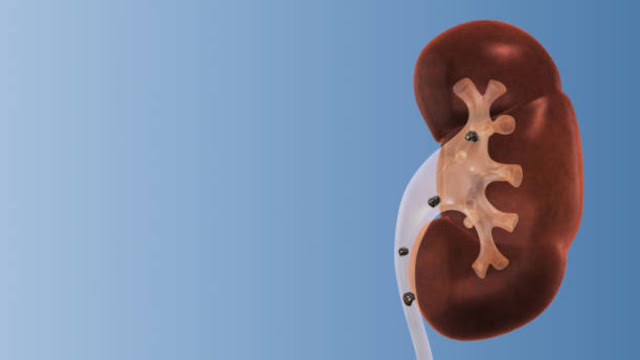BLOOD PRESSURE
BLOOD
PRESSURE
For the rest of our life, the heart pumps blood into the
arteries, which branch finely and finally end up with the thinnest of caliber
as so-called arterioles. This division can be imagined like a tree whose
branches are getting lighter and thinner. The blood flow slows down here due to
the increasing area, while the flow resistance increases. The vascular
cross-section of all arterioles together essentially determines the blood
pressure. Ultimately, the heart has to pump against this resistance from the arterioles.
The narrower the arterioles are, the more force is used to overcome the
resistance.
MUSCLE WALL
Arteries and arterioles have a relatively thick part of
their wall called the tunica muscularis. Muscle fibers are arranged in a ring,
the tension of which reduces the inside diameter of the blood vessel and can
thus increase blood pressure. The more stress, the more blood pressure.
BLOOD PRESSURE MAKES SENSE
The arteries' walls in the human body are naturally porous
so that important substances can pass through. Imagine a coffee filter through
which the desired substances pass. Our streets or their walls are these filters.
The purpose of blood pressure is to increase the number of macronutrients and
micronutrients squeezed out. Like an espresso
SENSITIVE BLOOD PRESSURE - EXERCISE
The blood pressure is regulated continuously but is not
always the same. It means that the current blood pressure is measured using
fine measuring sensors in the carotid arteries. If it falls or rises,
counter-regulation takes place. In the short term, this works with the increase
in heart rate.
When exercising, the muscles need more oxygen, so the blood
supply is increased by expanding the arterioles. Instead of the blood pressure
falling due to this expansion of the alveoli, the pulse frequency increases,
and with it, the blood pressure and the system remain stable or works at a
higher level. To put it in advance - work at a higher level always means
effort. The heart of a patient with high blood pressure must make an effort at
all times.
SENSITIVE - PSYCHE
Apart from physical exertion, blood pressure is also susceptible
to psycho-emotional stimuli. An uncomfortable phone call here, a stressful
situation there, or merely a visit to a doctor's office can raise your blood
pressure. Incidentally, higher with a doctor than with a nurse
It is partly due to the stress hormones adrenaline and
cortisol released in response. They serve to guarantee the blood flow to
muscles and the brain in stressful situations through increased blood pressure
and blood sugar. With their help, we then master the problem in terms of a
fight or flight response.
CONSTANT STRESS
If an exceptional situation persists - professionally or
privately, physically or mentally - the body can get used to the challenge and
works at a higher level when it becomes chronic. You "can no longer switch
off." Continuously increased stress
levels mean increased stress hormone levels continually and increased blood
pressure.
RECOVERY PHASES
Recovery phases are urgently needed to enable the blood
pressure regulation to be balanced at a low level and allow the heart and
arterioles to be halt.
·
THERAPEUTIC OPTIONS
·
Reduce stress levels
·
Introduce rest breaks
·
Detoxify through fasting
·
Relaxation of the muscle wall of arteries and
arterioles through dietary supplements
Everyone should reflect on the first two starting points for
themselves.
PURIFICATION - FUNCTIONAL THERAPY
From a functional perspective, increased blood pressure is
used to force nutrients out of the bloodstream. The arteries and arterioles
represent - as described - the filter. This filter can become thicker in the
course of life. Slagging is the keyword! Of course, you need a higher pressure
with thicker filter membranes to finally get the same amount of nutrients.
A therapeutic approach now consists of reducing slagging by
reducing calorie intake: fasting
In my opinion, it is relatively irrelevant which type of
diet you use to achieve this. The main thing is to eat fewer calories than are
needed. My personal favorite is the low carb diet, which is the ketogenic diet.
Carbohydrates are primarily avoided here. Alternatively, you could switch to a
plant-based diet with abstinence from animal fats, possibly secured by dietary
supplements for a vegan lifestyle.
DIETARY SUPPLEMENT IN HIGH BLOOD PRESSURE THERAPY
An elegant starting point here is the muscle wall of the
arteries and arterioles mentioned several times. Like all muscles, they need
magnesium and, in some cases, potassium for tension and, above all, relaxation.
When you relax, your blood pressure drops. As natural calcium antagonists,
these two electrolytes support the management of muscular tension during the
stress phase and the recovery afterward.
We recommend 100% of the recommended daily intake of
magnesium, which corresponds to 375mg.
Synergistically to the magnesium deficiency, an undersupply
of vitamin D3 can also increase blood pressure. In vitamin D3 supplementation,
I recommend an orientation towards the safe upper long-term limit of 4,000 IU
per day for eating in the ordination.
Coenzyme Q10 is also used in a dosage of 50-60mg per day
with food to improve heart and muscle strength and a useful antioxidant.
inbusinessworld digitalmarketingtrick thewebscience itgraviti beloveliness allmarketingtips

DOWNLOAD PGSLOT | ดาวน์โหลด พีจีสล็อต APP ได้ง่าย ๆ https://betflixs.net/pg-slot/
ReplyDelete배트맨토토
ReplyDeleteCool stuff you have and you keep overhaul every one of us
You have done a amazing job with you website
Thanks for sharing the info. Keep on sharing, waiting for your next updates
ReplyDelete온라인카지노
바카라사이트
카지노사이트
온라인카지노
I found so many interesting stuff in this blog. Really its great article.
ReplyDelete바카라사이트
카지노사이트
온라인카지노
바카라사이트닷컴